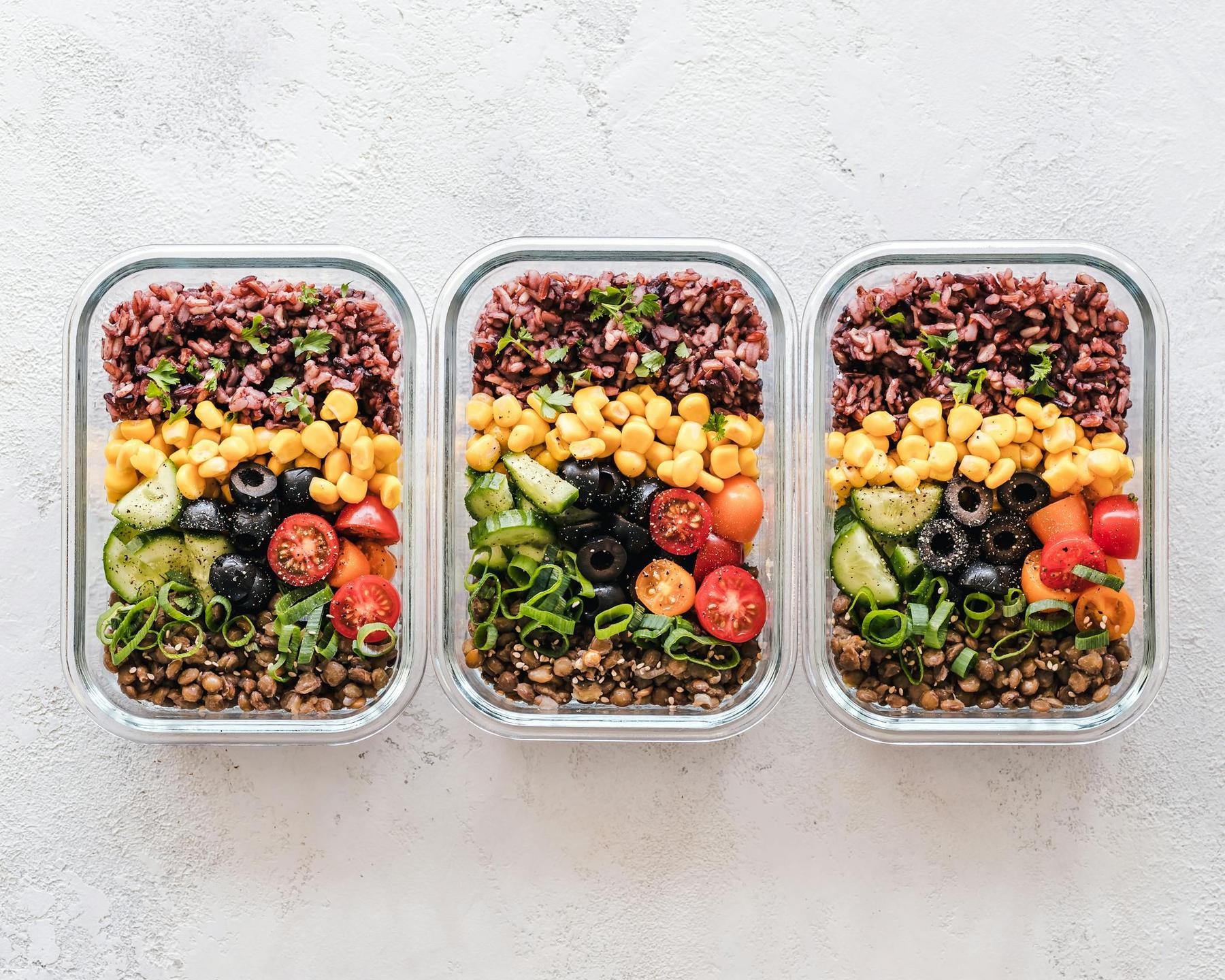In the pursuit of sustainable weight management, meal preparation stands as a cornerstone strategy supported by robust scientific evidence. While weight loss journeys often falter due to impulsive food choices and portion inconsistency, structured meal preparation offers a methodical approach that addresses these common pitfalls. For Australians navigating busy lifestyles whilst pursuing weight loss goals, mastering the fundamentals of meal prep can transform sporadic progress into consistent results.
Why Is Meal Prep Critical for Sustainable Weight Loss?
The science behind meal preparation’s effectiveness for weight management is compelling. Research demonstrates that pre-portioned meals are associated with approximately 8% greater weight loss compared to self-selected diets. This significant advantage stems from meal prep’s ability to create a controlled nutritional environment that eliminates decision fatigue—the cognitive burden that often leads to poor food choices after a day of multiple decisions.
Meal preparation creates a structured framework that addresses several critical factors simultaneously:
- Caloric awarenessthrough consistent portioning
- Nutritional balancevia planned macronutrient distribution
- Environmental controlby reducing exposure to unhealthy options
- Behavioural consistencythrough establishing repeatable patterns
When implemented correctly, meal preparation transforms weight management from a series of challenging daily decisions into a streamlined process that requires significant decision-making only once or twice weekly.
How Should You Structure Your Meal Prep Schedule for Maximum Efficiency?
Effective meal preparation requires a systematic approach that minimises time investment while maximising nutritional outcomes. Clinical evidence supports designating specific days for each component of the meal preparation process:
- Planning day: Dedicate time to menu development and nutritional balancing
- Procurement day: Strategic grocery shopping with a focused list
- Preparation day:batch cookingof core components
Research indicates that batch cooking—preparing larger quantities of foundational foods with longer cooking times—significantly reduces the daily friction associated with healthy eating. Focus on preparing versatile proteins (lean meats, legumes), complex carbohydrates (whole grains, sweet potatoes), and pre-washed, pre-cut vegetables that can be quickly assembled throughout the week.
| Meal Prep Component | Time Investment | Weight Loss Impact |
|---|---|---|
| Weekly menu planning | 30-60 minutes | Reduces impulsive eating, ensures nutritional balance |
| Strategic grocery shopping | 60-90 minutes | Eliminates unhealthy impulse purchases |
| Batch cooking | 2-3 hours | Creates portion-controlled meals, reduces daily decision fatigue |
| Container portioning | 30-45 minutes | Standardises serving sizes, prevents overeating |
This structured approach transforms what might otherwise be daily cooking requirements into a single efficient session, removing the barriers that frequently derail weight loss efforts.
What Are the Essential Nutritional Components for Weight Loss Meal Prep?
The nutritional composition of meal-prepped foods significantly influences weight loss outcomes. The evidence points to three critical macronutrient considerations:
Protein Prioritisation
Research supports including 25-30g of protein per meal to enhance satiety and preserve lean muscle mass during weight loss. Practical applications include:
- Incorporating lean protein sources (chicken breast, firm tofu, white fish)
- Preparing protein-rich plant combinations (legumes with whole grains)
- Utilising eggs as versatile, nutrient-dense protein options
Strategic Carbohydrate Selection
The clinical approach to carbohydrates for weight loss focuses on fibre content and glycaemic response. Evidence-based meal prep emphasises:
- Whole grains (brown rice, quinoa, barley) over refined alternatives
- Starchy vegetables (sweet potatoes, pumpkin) for sustained energy
- Legumes that provide both complex carbohydrates and protein
Functional Fat Incorporation
Despite their caloric density, appropriate fats are essential for hormone production, nutrient absorption, and meal satisfaction. Effective meal prep includes:
- Measured portions of avocado, nuts, and seeds
- Cooking with controlled amounts of olive oil
- Including oily fish for omega-3 fatty acids
When these macronutrients are balanced appropriately within pre-portioned containers, they create meals that support physiological weight loss mechanisms while maintaining satisfaction.
Which Tools and Equipment Make Weight Loss Meal Prep Easier?
The technical aspects of meal preparation significantly impact adherence and success. Research shows that appropriate tools can streamline the process and improve portion consistency:
- Measurement tools:Food scalesand standardised measuring cups provide objective portion control, addressing the tendency to underestimate serving sizes
- Storage solutions: Division-specific containers that physically separate protein, carbohydrates, and vegetables reinforce balanced meal composition
- Time-efficiency equipment: Slow cookers, pressure cookers, and sheet pans facilitate passive cooking methods that reduce active preparation time
These physical tools serve as environmental modifications that make nutritionally-sound choices the path of least resistance—a key principle in behaviour change science.
How Can You Maintain Meal Prep Consistency for Long-Term Results?
Sustainability represents the most significant challenge in weight management interventions. Research identifies several evidence-based strategies for maintaining meal preparation consistency:
- Rotating menu systems: Implementing a 3-4 week rotation prevents flavour fatigue while maintaining efficiency
- Scalable preparation: Gradually increasing preparation from 3 to 5 days per week as capacity develops
- Strategic flexibility: Incorporating one or two “flex meals” weekly to accommodate social occasions while maintaining overall structure
These approaches acknowledge that meal preparation must adapt to life’s realities while preserving its core benefits for weight management.
The Integrated Approach to Meal Preparation
Successful weight management through meal preparation requires viewing these components as an integrated system rather than isolated techniques. When planning, portioning, and nutritional considerations work in concert, they create a sustainable framework that addresses both the physiological and behavioural aspects of weight management.
For individuals with higher BMIs or those who have struggled with conventional approaches, combining structured meal preparation with medical weight management offers a comprehensive solution that addresses multiple facets of the weight loss challenge simultaneously.
Skip the struggles. Our patients achieve 20.2% weight reduction with medical weight loss treatments delivered straight to their door. No clinics. No waiting. Just results. See if you’re eligible for our medical weight loss treatments – take our quiz.
How much time should I allocate weekly for effective weight loss meal preparation?
Evidence suggests that effective meal preparation typically requires 3-5 hours weekly, divided between planning (30-60 minutes), shopping (60-90 minutes), and actual preparation (2-3 hours). This time investment significantly reduces daily food decision-making and preparation time, ultimately saving time across the week while improving nutritional quality.
What is the optimal container system for weight loss meal preparation?
Research supports using portion-controlled containers with distinct compartments that physically separate macronutrients. This system provides visual cues for balanced meals (typically 1/4 protein, 1/4 complex carbohydrates, and 1/2 non-starchy vegetables) while standardising portions. BPA-free containers with secure seals that are microwave-safe optimize both safety and convenience.
How does meal preparation specifically contribute to weight loss success?
Meal preparation promotes weight loss through multiple evidence-based mechanisms: it ensures caloric control through consistent portioning (linked to 8% greater weight loss in studies), eliminates decision fatigue that leads to poor food choices, increases consumption of whole foods versus ultra-processed alternatives, and creates behavioural consistency—a critical factor in sustainable weight management outcomes.
Can meal preparation be effective for those with significant weight to lose?
Clinical evidence indicates that structured meal preparation is particularly beneficial for individuals with higher BMIs or substantial weight loss goals. The systematic approach addresses key barriers these individuals often face, including portion distortion, nutritional imbalance, and environmental challenges. For optimal results, combining meal preparation with medical weight management provides comprehensive support for those with BMIs above 27.



